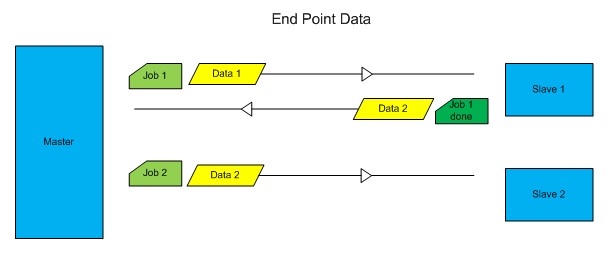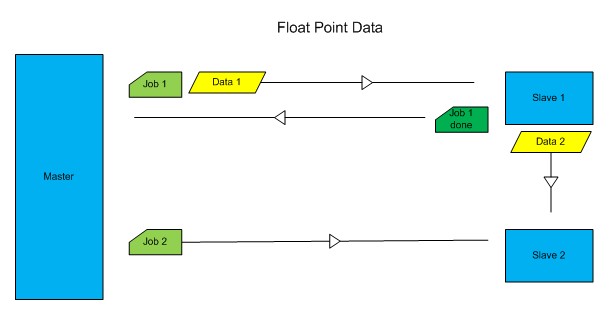Record Data
When running in Master/Slave mode CLIP will distribute all 'Slaveable' Methods across all of the available processors. To do this data has to be copied from the master to the slave, and any results copied back in preporation for the next process (method). In a big application, or where there is a large data flow this network traffic can be the limiting factor in system performance. This data transfer mode (affinity) is called 'End Point' and is the default mode.

To reduce the network traffic, each CLIP data store can be configured with a 'Float Point' affinity so that the output data is not returned to the master. It remains on the slave. The next method in the processing chain is then told by CLIP to get its data from the slave. Thus saving a network transfer and if the new method is run on the same slave this will save 2 transfers.

Note: in an application where the a particular data store has to go back to the master (ie it is required by a non-slaveable Method or a Thread) its affinity should not be set to 'Float Point'.
Method State Data
State data is data private to a Method but is updated each time the Method runs. As such CLIP has to transfer the data across the network before the Method can be executed and copied back to the master afterwards. Again to reduce network traffic this state data can be configured with a 'Float Point' affinity in the same way as data records.